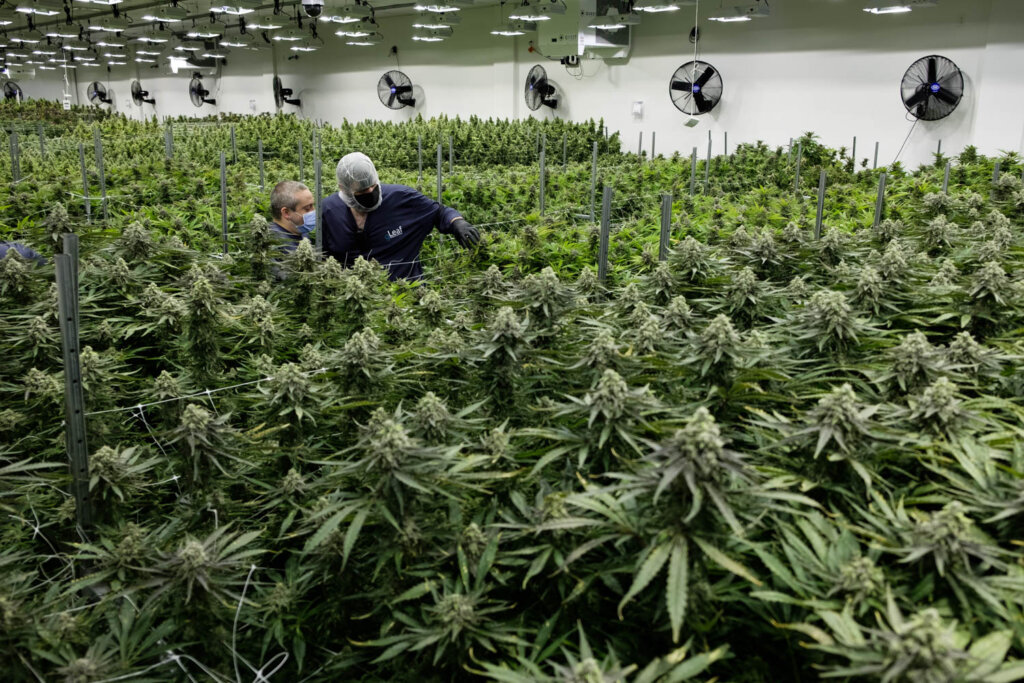Weed in Başakşehir: Navigating the Growing Issue

Başakşehir, a rapidly growing district in Istanbul, has become a symbol of urban development and modern living. With its sprawling residential areas, shopping malls, and new infrastructure projects, the district has been attracting a diverse population. However, like many other urban centers, Başakşehir is also facing the challenges that come with urbanization, including the rising issue of drug use, particularly cannabis, commonly known as weed on weed in Basaksehir.
The Rise of Cannabis Use in Başakşehir
Cannabis use has been on the rise in Turkey, and Başakşehir is no exception. Despite cannabis remaining illegal in Turkey, the use of this substance has steadily increased, particularly among younger generations. For some, cannabis is seen as a way to relax and escape from the stresses of daily life, while others may experiment with it as part of social or recreational activities on weed in Basaksehir.
In Başakşehir, many young people, especially those in high school and university, have become involved in cannabis use. The relatively low cost and easy availability of cannabis make it an attractive choice for those seeking a quick and accessible high. Whether it’s used at parties, in parks, or even in private homes, cannabis has found its way into the daily lives of many in the district on weed in Basaksehir.
Social media and peer influence also play a role in the normalization of cannabis use in Başakşehir. Young people are often exposed to content that glamorizes drug use, and peer pressure can push them toward trying substances like cannabis. In a district where the youth culture is very vibrant, cannabis consumption becomes more common and less stigmatized on weed in Basaksehir.
The Impact of Cannabis Use
Although cannabis is often regarded as a less harmful substance compared to drugs like heroin or methamphetamine, it still carries significant risks. The short-term effects of cannabis use can include impaired memory, lack of concentration, and altered judgment. For young people, this can have serious consequences on academic performance and social relationships.
Furthermore, regular cannabis use can lead to long-term effects, including dependency and mental health issues. Prolonged use can contribute to anxiety, depression, and even psychosis in certain individuals. Young users, in particular, are vulnerable to these mental health risks, as their brains are still developing.
In Başakşehir, the rise in cannabis use among young people is concerning for both families and local authorities.
Legal and Social Ramifications
Cannabis remains illegal in Turkey, and the legal consequences for using, possessing, or distributing cannabis can be severe. Those caught with cannabis may face fines, imprisonment, or both. Despite these strict laws, cannabis remains readily available in Başakşehir and many other parts of Istanbul. This creates a paradox where the legal system attempts to discourage drug use while, in practice, cannabis remains part of the urban landscape.
The social ramifications of cannabis use are also noteworthy. While some view cannabis as a harmless recreational drug, others are concerned about its potential to contribute to a broader drug culture. In Başakşehir, as in many other urban centers, the normalization of cannabis use among young people could lead to an erosion of social norms and an increase in tolerance for other illegal drugs.
Combating Cannabis Use in Başakşehir
Efforts to reduce cannabis use in Başakşehir require a multi-faceted approach. One of the key strategies is education. Schools and universities in the district can play an important role in raising awareness about the dangers of drug use. Comprehensive drug education programs can inform young people about the risks associated with cannabis and other substances. Additionally, these programs can provide resources for those struggling with substance abuse.
Local health services also have a crucial role to play. Counseling services, rehabilitation programs, and mental health support can provide essential help to those affected by drug use. Public health campaigns can also help reduce the stigma surrounding addiction and encourage individuals to seek help without fear of judgment.
Community engagement is equally important. Local leaders, law enforcement, and families can work together to create safe, supportive environments for young people. Offering alternative activities, such as sports, arts, and volunteer programs, can help keep young people engaged and away from substances like cannabis.
Conclusion
Cannabis use in Başakşehir is a growing issue that reflects broader social and cultural trends in urban Turkey. While cannabis may be seen as a less harmful drug, its impact on young people and the community should not be underestimated. Through education, prevention, and community engagement, Başakşehir can address this issue and create a safer, healthier environment for its residents. By providing young people with the tools they need to make informed choices, the district can reduce the prevalence of cannabis use and encourage a culture of responsibility and well-being.

When it comes to marijuana products, ScentHub offers an extensive selection of some of the highest quality items I’ve come across. I’ve tried a variety of strains, edibles, and concentrates, and the quality has consistently been outstanding. The flowers are always fresh, fragrant, and potent. I’ve had the chance to try both Sativa and Indica strains, and the effects have been exactly as described. Contact them on email: Scenthub43@gmail.com and also there Telegram : t.me/Scenthub43
Wow they have an option for me. The variety in their selection means that no matter my experience level, I’ll find a product that fits my needs. highly recommended .

I can say without hesitation that ScentHub has earned my loyalty. From the quality of the products to the exceptional customer service.
“I was struggling with insomnia, and they found the perfect edible for me, Thank you”
Mine helped my dad find a tincture for his arthritis, highly recommended.
You’ve helped me smile again.